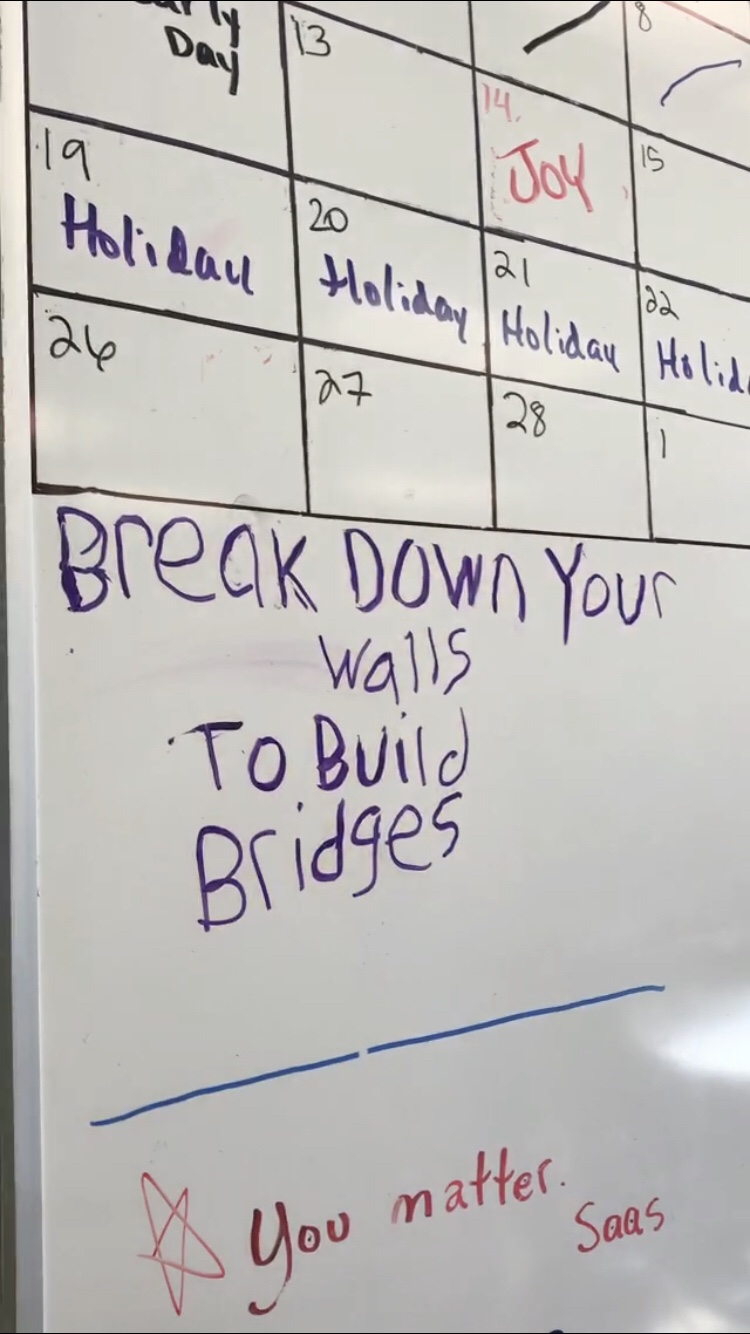Keeping Talking
~
My school division recently launched a locally developed course, Mental Health Studies 20L. This course is designed specifically to meet the needs of learners’ in our division. The course addresses positive mental health, common mental health challenges, understanding stigma in relation to mental illness, and mental health and addictions. Teachers are nudged to take up the task of offering this course, helping students and school communities break down mental health stigma.
Hmm. I was in pre-start up meetings Monday with my two counterparts, the other ‘Grad Coaches’ in our division. Our mandate, or one of our mandates, is to help students at risk of not graduating to graduate on time.
Recently, I read Zac Chase’s thoughts about living educational mandates and the reality of living our work:
“I’m supposed to be talking about standards, though, right? Where’s my rhetoric around problems of practices, data-driven decision making, and instructional design?
What nerve do I have shunning my innovator’s mindset; deciding not to teach like a champion, a pirate, or my hair is on fire and focusing on something as ephemeral and un-quantifiable as joy.”
I want to talk about joy.
I need to talk about joy.
And while I do, we are also going to talk. About everything. And in this sharing space, talking is going to be ok.
~
We grad coaches sat together Monday mucking through the often hardwork of figuring the logistics of offering this new locally developed course with only two weeks to go before the start of classes, the often trickiness of the content, and the often tenderness of our students, and be certain, the pain of each of our own lived experiences.
The conversation was messy. We circled around and back to ideas, to plans, sifting through thoughts. And circled on. There were tears and smiles and harsh looks and gentle knowings.
By phone, we chatted with one of the course developers, clarifying the fundamental need to offer the course as an elective, allowing students the choice to engage with big ideas and potentially painful topics. This isn’t a core subject after all, it’s different.
Would we sit on it, spend the fall planning? Would we push through, bring in outside agencies, where possible and forge ahead, as an elective, having the tough talks, living vulnerable. Or would we pause, plan carefully and launch a well crafted, course next September?
~
See. This isn’t a core subject. It’s different.
~ Friday two of my former students were in a horrific altercation, one dying, illegibly, at the other’s hand. See. I am tired of losing kids.
That’s important. I want you to read that again.
I am tired of losing kids.
Many people have asked me if I knew the boys. And what they want is a storied telling. Stop. In all ways. Please.
One came to me years ago a gangly grade nine. I took him on his first outdoor education trip. He had very little. My dad scrounged together a sleeping bag, camping supplies. We were camped in a deep ravine, total backcountry kind of stuff. He ran free, like his smile was released from his belly and he was set to chase it. He smiled right through to the end of the year.
The other came to me years later. We wrote laters one summer while he was hoping to set his world on longed for path. The letters began after my dad’s stroke. He made a wooden cribbage board, and he gave it to me to share with my dad once dad was recovered. I shared stories of dad’s teachings, and of hope. The letters came written on long pieces of foolscap, remember that? Folded in half and then a third. Printed carefully.
Not a core class.
I am thinking about the ripple effect from the events Friday. The boys with partners, with babies of their own now. I am thinking deeply of the many, many, many lives so forever and unquestionably shifted.
I am thinking of my friends, my colleagues who live the pain of loosing kids
This is important.
Last year I did more than 15 suicide interventions. I am an Student Support teacher. There are six other SSTs at my school. How many kids did we talk with? Add the councillors? Now our caring and attentive staff. We are over 50. In Canada suicide is the second leading cause of death in youth ages 15-24 (Health Commissions of Canada, 2017). This statistic has not changed in 20 years. I learned this fact from the MHS20L curriculum. I feel it too.
This is important.
Tuesday my husband, Alan, asked how I am going to welcome my kids back the first day.
“Hug them.”
Wednesday, again. Again. Someone inquired about the boys.
Let me tell you. I love my kids. I can tell you something beautiful about each and every each student I have taught.
Needed.
Talk openly. Talk hard. Talk hope. Start now.
